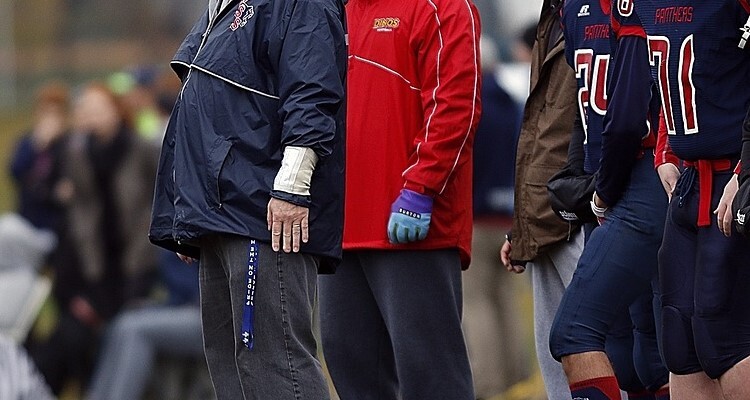
Learning is a dynamic process influenced by various factors, and the Social Cognitive Theory (SCT) of learning, proposed by renowned psychologist Albert Bandura, offers a comprehensive understanding of how individuals acquire new knowledge and skills. In this blog post, we'll explore the key principles of Social Cognitive Theory and delve into its implications for education, personal development and sport, supported by relevant references.
Albert Bandura's Social Cognitive Theory posits that learning is not merely a result of direct reinforcement or punishment, as suggested by behaviourist theories, but is also influenced by observational learning, imitation, and the interplay of personal, behavioural, and environmental factors. The theory emphasises the role of cognitive processes, social interactions, and modelling in the learning process.
Observational learning involves acquiring new behaviours or information by observing others. Bandura's classic Bobo doll experiment illustrated how children learned aggressive behaviours by watching adults.
Modelling refers to learning through imitation of behaviour observed in others. Individuals are more likely to imitate models they perceive as competent, prestigious, or similar to themselves.
Self-regulation involves managing one's own behaviour, thoughts, and emotions. Bandura highlighted the importance of self-regulation in goal setting, self-evaluation, and self-reinforcement.
Reciprocal determinism posits that personal, behavioural, and environmental factors interact and influence each other bidirectionally. Individuals actively shape their environments, and environments, in turn, affect behaviour and cognition.
Educators can leverage modelling to demonstrate desired behaviours and skills. Bandura's theory suggests that providing positive role models enhances the learning experience.
Fostering a sense of self-efficacy—belief in one's ability to succeed—is crucial. Encouraging students, providing constructive feedback, and setting achievable goals contribute to the development of self-efficacy.
Designing interactive and collaborative learning environments facilitates observational learning and social interaction. Bandura's theory supports the idea that learning is enhanced through shared experiences.
Recognising the importance of cognitive processes, educators can focus on developing critical thinking, problem-solving skills, and metacognition, aligning with Bandura's emphasis on self-regulation.
Albert Bandura's Social Cognitive Theory of Learning has significantly shaped our understanding of how individuals acquire knowledge and skills. By recognising the influence of observational learning, modelling, and self-regulation, educators can create effective learning environments that empower individuals to actively engage in the learning process. As we continue to explore innovative approaches to education, Bandura's insights remain invaluable in guiding us towards more comprehensive and effective learning strategies.
The Social Cognitive Theory of Learning, proposed by Albert Bandura, holds valuable implications for athletes seeking to enhance their performance, learn new skills, and navigate the challenges within the sports environment. Let's explore how the principles of Social Cognitive Theory (SCT) can be applied to the realm of athletics:
Athletes can benefit from observing and learning from successful role models or teammates. Watching skilled athletes perform specific techniques or strategies enhances the learning process. Coaches can use modelling to demonstrate correct form and execution.
Coaches play a pivotal role as models for athletes. Demonstrating positive behaviours, such as resilience, sportsmanship, and effective communication, can influence athletes to adopt similar attitudes and actions. Emphasising these behaviours contributes to a positive team culture.
Self-efficacy, the belief in one's ability to succeed in specific situations, is a central concept in SCT. Coaches can foster athletes' self-efficacy by providing positive reinforcement, setting achievable goals, and offering constructive feedback. Enhanced self-efficacy contributes to improved performance and a willingness to take on challenges.
Team sports inherently provide an interactive learning environment. Creating a positive and collaborative team culture encourages athletes to learn from one another. Peer modelling and constructive competition can motivate individuals to strive for continuous improvement.
Athletes can benefit from setting specific, challenging, and realistic goals. The process of self-regulation, including monitoring and adjusting behaviours to achieve desired outcomes, aligns with Bandura's emphasis on personal agency. Coaches can guide athletes in setting both short-term and long-term goals.
SCT acknowledges the role of cognitive processes in managing stress and adversity. Athletes can develop effective coping strategies through cognitive restructuring, visualisation, and positive self-talk. Coaches can incorporate mental skills training to enhance athletes' ability to cope with pressure situations.
Constructive feedback is a powerful tool in athlete development. Coaches should provide specific and timely feedback to guide learning and reinforce positive behaviours. Positive reinforcement enhances motivation and encourages athletes to repeat successful actions.
Establishing mentoring relationships among athletes creates opportunities for peer modelling and support. Experienced athletes can mentor younger teammates, fostering a positive learning environment and contributing to team cohesion.
By integrating these principles into coaching and training programs, athletes and coaches can leverage the Social Cognitive Theory of Learning to optimise skill acquisition, foster a positive team culture, and enhance overall performance in the competitive world of sports.
References
Bandura, A. (1977). Social Learning Theory. Prentice Hall.
Bandura, A. (1986). Social Foundations of Thought and Action. Prentice Hall.
Image by Keith Johnston from Pixabay
